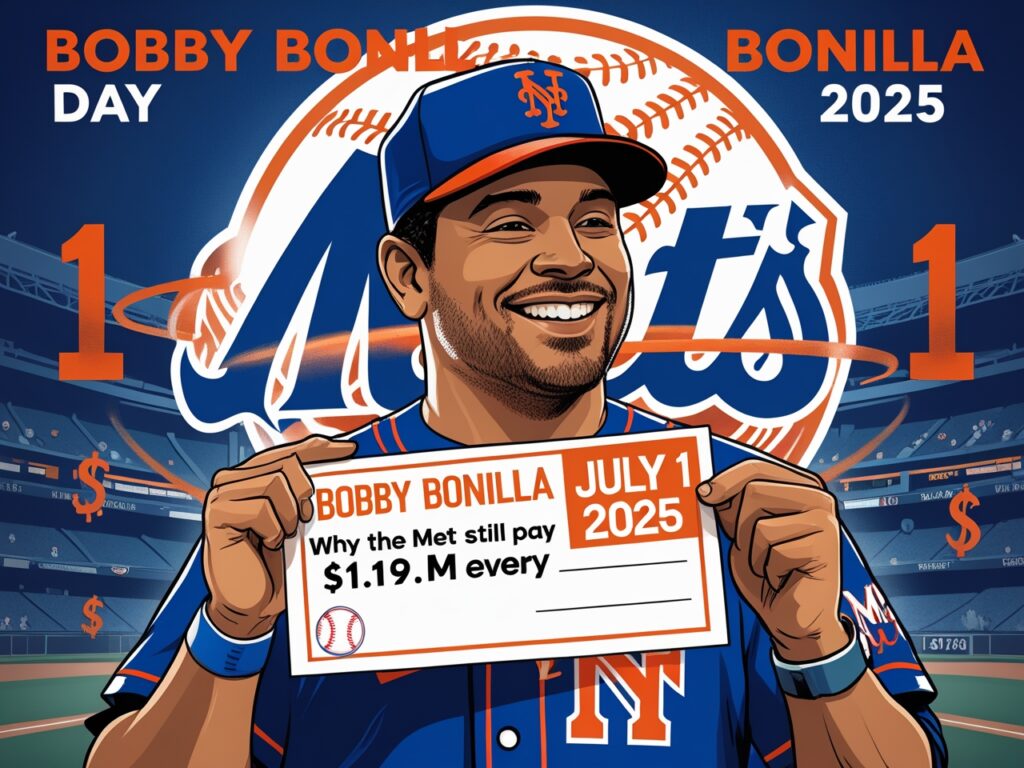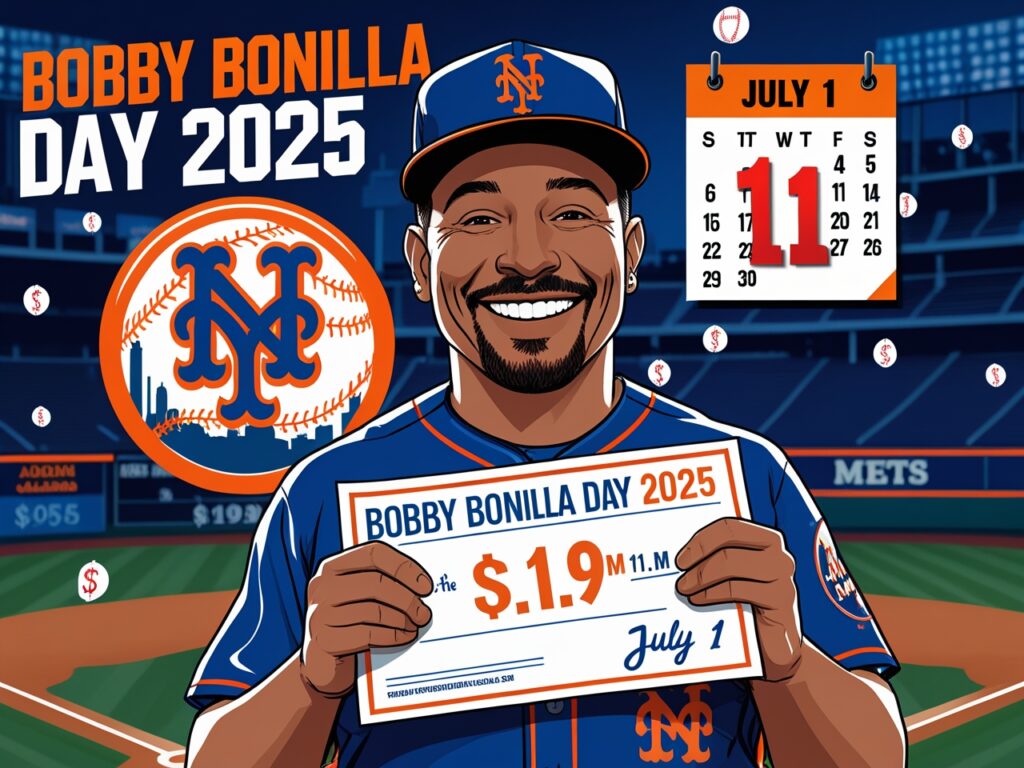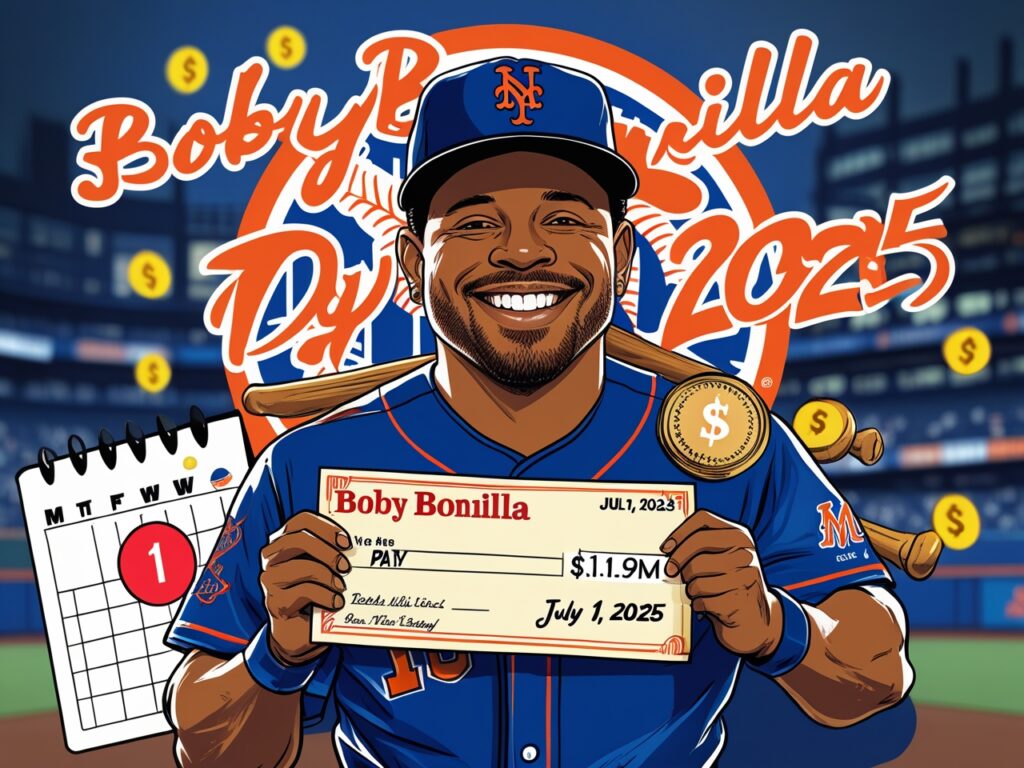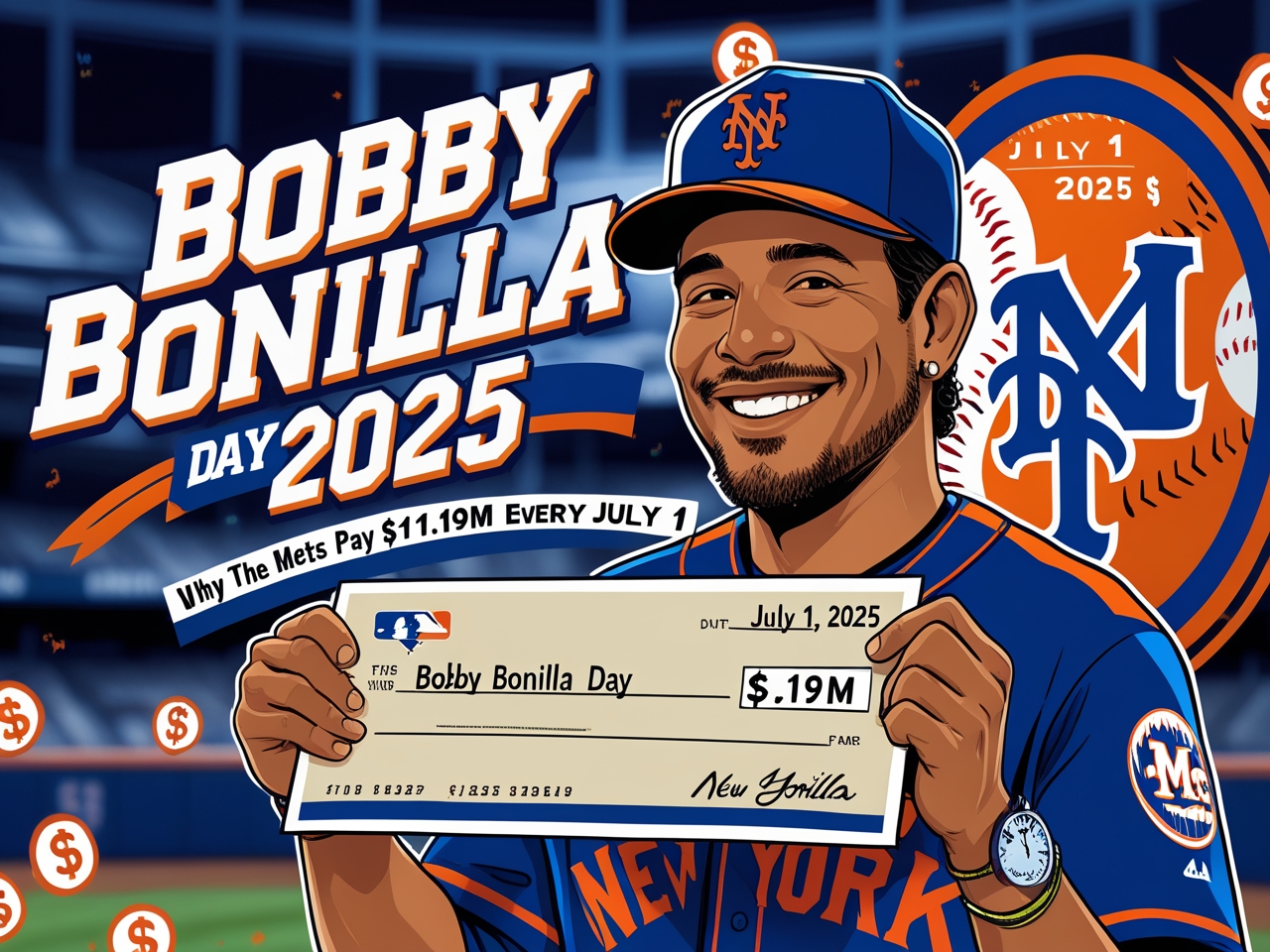Every July 1, baseball fans worldwide celebrate an odd holiday called Bobby Bonilla Day. Each year on this day the New York Mets will send a check for $1,193,248.20 to former All-Star outfielder Bobby Bonilla, a tradition they continue to this day that started in 2011 and lasts until 2035.
This deferred salary MLB deal may be the butt of jokes from fans, but it is an amazing story of financial blunders, crafty negotiation, and the long repercussions of Bernie Madoff’s Ponzi scheme. In 2025, and Bonilla is now 62 and a long time has passed since the day Bonilla gets to cash another big check, we look at why this notorious New York Mets check still fascinates baseball fans and what it shows us about the realities of MLB contracts.

The Creation of Bobby Bonilla Day
Bobby Bonilla was a six-time All-Star during his 16-year career, playing for teams like the Pittsburgh Pirates and Florida Marlins, but he had an uninspiring tenure with the New York Mets from 1992-1995, and a brief return in 1999 as well.
After 60 games of a .160 average with 4 home runs in 1999, the Mets wanted to part ways with Bonilla, but had a problem: they owed him $5.9 million for the 2000 season. Instead of writing Bonilla a check for the $5.9 million, Fred Wilpon and the Mets ownership worked out a deal that would become one of the most famous deals in baseball history.
Bonilla’s agent, Dennis Gilbert, arranged a deferred salary agreement through the MLB. What they agreed to was for the Mets to defer the $5.9 million and start paying Bonilla in 2011 with 8 percent annual interest over 25 years. This bad check would eventually amount to $29.8 million, in payments of $1.19 million annually, on July 1 each year until 2035, the year Bonilla turns 72. Bobby Bonilla Day was born from fans and the media using the term to mark the annual New York Mets payment.
The Bernie Madoff Connection
How could the Mets agree to such a long-term payout? The optimistic financial backdrop of the early 2000s explains it. The Mets’ ownership had become heavily invested with Bernie Madoff, the financier famous for running the largest Ponzi scheme in world history, promising double-digit returns to investors.
The Wilpons apparently felt confident that they could invest Bonilla’s $5.9 million in Madoff’s accounts and earn Madoff’s guaranteed annual returns of 10-15%, far above the 8% the Mets were paying Bonilla. They presumed they would earn profits while not having to pay Bonilla immediately.

As we know, Madoff’s operation collapsed in 2009, and was revealed to be the largest Ponzi scheme in human history. Like many of Madoff’s investors, the Mets suffered significant financial losses and lost the potential profits they presumed to have from Bonilla’s deferred contract.
Instead, they were left holding the bag, and their $1.2 million financial obligation to Bonilla has become a popular joke in the baseball world. The Bernie Madoff Mets connection highlights how this deal, which seemed like a smart financial transaction, turned into an embarrassing cautionary tale about overconfidence.
Why Bobby Bonilla Day Resonates
Bobby Bonilla Day has become a cultural event that transcends sports. Every July 1, social media is alive with memes, and jokes, and mentions about the Mets making payments to a player who last played for them in 1999. Fans are always in disbelief that Bonilla makes more in an annual payout than many current MLB stars, especially young players who fit within the restrictive MLB salary structure.
For example, in 2025, baseball’s projected salary for Miami Marlins’ Jazz Chisholm or Tampa Bay Rays’ Shane McClanahan is less than Bonilla is receiving at $1.19 million – and they were on the field contributing while Bonilla is not.
The irony of Bonilla’s deal – and the terms of the deal – can be appreciated because it is still being paid to Bonilla. Bonilla retired in 2001 after serving at least 3 teams in the 2000 season with the St. Louis Cardinals being his last stop.
Whenever there is a financial or salary management mistake in the sports world, it seems, qualitative analysis has allowed even since the deal was agreed to almost a generation ago, for Bobby Bonilla to remain a discussion point of leadership through good hustle moves made by his agent’s decision for a deferred salary MLB deal with compound interest with the now disgraced Wilpon family ownership.

The Mets Now Celebrating Bobby Bonilla Day
Under new owner Steve Cohen, who bought the Mets in 2020, the team has embraced the Bobby Bonilla Day storyline. Cohen said he has contemplated having a Bobby Bonilla Day at Citi Field with a big ceremonial check. In 2021, the Mets offered fans the opportunity to book a Citi Field Airbnb stay for $250 that would include having Bonilla as a host.
All these are tongue-in-cheek ideas of making Bobby Bonilla Day a fan-friendly day. Cohen and the Mets celebrate moving beyond any embarrassment, and looking to attack the Josh Bonilla outrageous contract narrative, turning a historic and legitimate mistake in the Mets’ history into a marketing memory.
This amounts to Cohen findign ways to advance past the Bernie Madoff Mets. The Wilpons tied to Bernie Madoff’s financial scheme for an extended period meant the franchise could not dig itself out of consistently poor performance year over year. Cohen emerged with a plan, hired a workforce, gave cash and comfort to the franchise, and reinvested in the franchise, and just like that, excitement returned to the Mets.
The yearly New York Mets payment to Bonilla will continue to remind them previously they approached Bobbby Bonilla deal for extends with their past heal Piy and withholding financing, met Mrs. Joe lub, and functioning out a cash payment without offering a repayment for the thin idea.
The Financial Education of Bobby Bonilla Day
Bobby Bonilla Day has given us more than memes, it has taught us something about compound interest. As NPR’s Planet Money mentioned, a deal like Bonilla’s shows how a dollar today can be worth a lot of dollars in the future after investing it. Bonilla’s choice to defer $5.9 million (as opposed to taking it in 2000), made him almost $30 million dollars – and because Bonilla lived in Florida, the money was tax-advantaged. It is a good reminder for athletes and fans alike, about planning for the future and using financial products such as annuities and deferred payments.
It’s safe to say the Mets’ execution of the deal wasn’t as successful, however. The Mets had to pay way more than they anticipated because of the failure of their Madoff investments, and the now-annual news story/server issue is a PR headache. At the same time, Bonilla Day also humanizes the Mets’ front office, and shows how major organizations can just as easily fall prey to similar mistakes.

